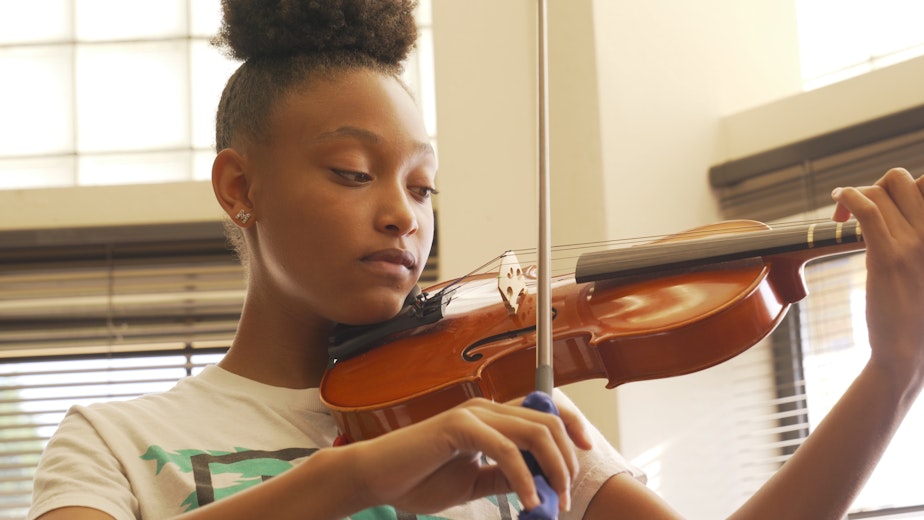These south Seattle music students moved online effortlessly – and they’re asking for more

Quinton Morris was at a national music educators’ conference a couple of months ago when he got a feeling he’d have to move his after-school classical music program online.
“My mother always told me to listen to that voice inside me,” Morris says.
So in early March, Morris told his teenaged violin and viola students they’d be going digital. He said it’s really nothing new for these teenagers.
“A lot of the students they record their practice sessions on their phones and email them to me,” Morris said.
Morris’ program, Key to Change, involves 30 middle and high school students in south King County. He has reached out to under-served youth in particular: teens of color, or those who couldn’t afford to take classical music lessons.
More than 80 percent of the students receive scholarships. Morris is proud to say that none of the Key to Change participants has dropped out of his music program during the pandemic.
Sponsored
In fact, Morris says some of them have asked him to give them more to do.
Sponsored
“I asked if they wanted me to assign academic work and they said yeah,” he said. “So I said, okay, we’re going to write papers on Mozart and composers of color.”
He doesn’t see it as busy work; Morris wants to give the Key to Change students tools they'll need to succeed beyond the music world—everything from research experience to leadership skills. Despite the challenges of continuing the program online, Morris remains committed to the program goals.
“While we can’t necessarily touch each other, and we’re not in the same room,” Morris said. “The community is still there, and that community should not be lost.”




